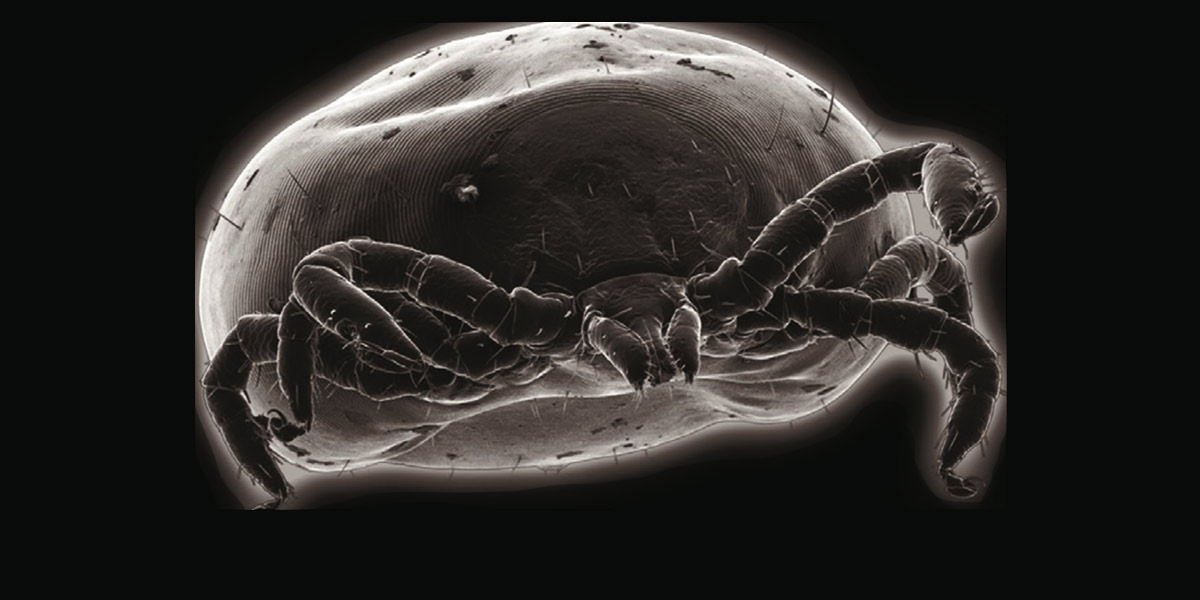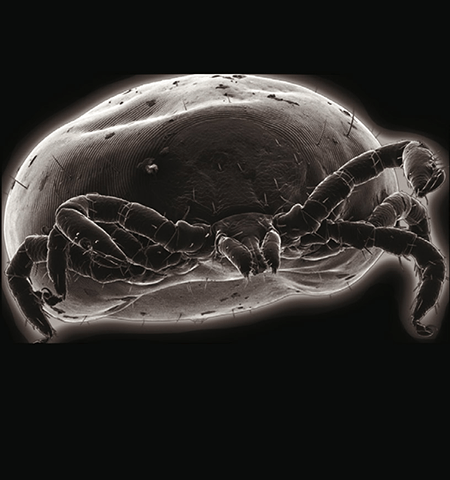

ORIGINALLY POSTED 04/01/2016 |
FROM THE Spring 2017 ISSUE
Janakiram Seshu, associate professor of biology and associate dean of the Graduate School, has received a grant from the National Institute of Allergy and Infectious Diseases to support research to better understand and prevent the spread of Lyme disease.
The big question at the heart of Seshu’s research is how the bacterium that causes Lyme disease, called Borrelia burgdorferi, is able to adapt to its immediate environment inside the tick vector or infected mammalian hosts. Mammalian bodies are very rich in nutrients and fatty acids, which make it easy for the bacteria to thrive. The tick’s body is different. It’s very poor in nutrients. Yet the bacterium adapts very quickly and allows the disease to spread.
To limit the transmission of the disease, Seshu’s entire laboratory is focused on understanding how the Lyme disease–carrying bacterium can reinvent itself to live for so long in such a disagreeable environment.
“With Lyme disease–carrying ticks now present in more than half of the United States, Dr. Sheshu’s research and findings will provide new insights into the treatment against the particular bacterium,” says Bernard Arulanandam, UTSA interim vice president for research.
Seshu, a member of the South Texas Center for Emerging Infectious Diseases, is best known by his peers for his inventive approach to stop the spread of Lyme disease.
His work, described in a recent paper, leverages medication that is normally used to lower cholesterol.
“Dr. Seshu’s top-tier efforts in infectious disease research are a source of immense pride for the UTSA College of Sciences,” says George Perry, the Semmes Foundation Distinguished University Chair in Neurobiology and dean of the UTSA College of Sciences. “His work will undoubtedly have a great impact on our knowledge of Lyme disease as well as our efforts to fight it.”
“As Lyme disease–carrying ticks increasingly spread to new areas of the country, we need to improve our understanding of the disease. Dr. Seshu’s bacteria research will help us limit Lyme disease’s spread and allow folks here in Texas and across the nation to live healthier lives,” says U.S. Rep. Joaquin Castro. “Thanks to UTSA’s continued leadership, science thrives in San Antonio.”
“This award from the National Institute of Allergy and Infectious Diseases is an exciting investment to tackle a major debilitating disease in the U.S.,” Seshu says. “I’m looking forward to advancing our understanding of this disease so that we can start finding better solutions.”

